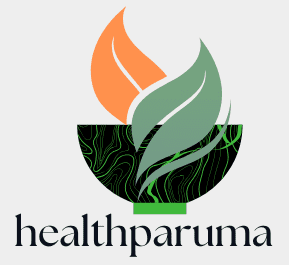Everything you need to know about ldl cholesterol, its impacts on your heart health
Introduction: ldl cholesterol, commonly known as “bad” cholesterol, is a major risk factor for heart disease and stroke. Understanding ldl cholesterol, its functions, effects, and management strategies can significantly impact your cardiovascular health. With heart disease remaining one of the leading causes of death globally, gaining knowledge about ldl cholesterol is vital for preventative health. In this comprehensive guide, you’ll learn from expert studies and gain actionable insights to maintain optimal ldl levels. Empower yourself by becoming informed and proactive in protecting your heart health. 💖🧠📘
What is ldl Cholesterol? 🩸🏥🔬
ldl cholesterol stands for Low-Density Lipoprotein cholesterol. It carries cholesterol particles throughout your body and deposits them on the walls of your arteries. Over time, these deposits can build up, leading to atherosclerosis, which significantly increases your risk of heart attacks and strokes. ldl cholesterol differs from HDL (high-density lipoprotein) cholesterol, commonly known as “good cholesterol,” which helps remove ldl cholesterol from your arteries. Understanding these differences is critical in maintaining balanced cholesterol levels.
Importance of ldl Cholesterol Levels 📈❤️⚠️
Managing ldl cholesterol levels is crucial because elevated ldl levels strongly correlate with heart disease, as confirmed by numerous clinical studies. High ldl levels can silently damage your arteries, often without any symptoms, until a significant cardiovascular event occurs. Monitoring and controlling these levels early can greatly reduce your risk of developing serious health complications later in life. Regular check-ups with your healthcare provider are essential in keeping ldl cholesterol in check.
Understanding ldl Cholesterol Levels 📊🔎🩺
Medical professionals categorize ldl cholesterol levels as follows:
- Optimal: Below 100 mg/dL
- Near Optimal: 100-129 mg/dL
- Borderline High: 130-159 mg/dL
- High: 160-189 mg/dL
- Very High: 190 mg/dL and above
According to the American Heart Association, adults should regularly screen their cholesterol levels every 4-6 years. More frequent screenings may be necessary if you have risk factors such as family history, obesity, or diabetes. These regular screenings help detect potential problems early, enabling timely interventions to improve heart health and prevent serious conditions.
Factors Influencing ldl Cholesterol 🌡️🍔🏋️♂️
Several factors can affect your ldl cholesterol levels:
- Diet: High saturated fat, trans fat, and cholesterol intake
- Weight: Obesity significantly elevates ldl cholesterol levels
- Physical Activity: Sedentary lifestyles lead to higher ldl cholesterol
- Genetics: Familial hypercholesterolemia is an inherited condition that can lead to very high ldl cholesterol levels
- Age and Gender: ldl cholesterol tends to rise with age, especially in postmenopausal women
It’s important to recognize that some of these factors are controllable through lifestyle changes, while others, like genetics, are not. Nonetheless, even individuals with genetic predispositions can significantly benefit from making healthier lifestyle choices. Consulting a healthcare provider can help you better understand your specific risks and take appropriate actions.
Impact of High ldl Cholesterol 🚨❤️🧨
Medical studies have consistently linked high ldl cholesterol levels with:
- Coronary artery disease
- Peripheral artery disease
- Stroke
- Increased risk of heart attacks
According to the CDC, high cholesterol doubles the risk of heart disease compared to individuals with optimal ldl levels. Beyond these immediate risks, untreated high ldl cholesterol can lead to long-term damage to the cardiovascular system. Taking preventative measures now can have a significant impact on your overall health and longevity.
How to Lower ldl Cholesterol Naturally 🌿🥑🏃
Dietary Adjustments:
- Increase intake of soluble fiber (e.g., oats, beans)
- Include omega-3 fatty acids (e.g., salmon, flaxseeds)
- Limit saturated and trans fats
- Incorporate plant sterols and stanols
A balanced diet rich in fruits, vegetables, and whole grains also promotes better heart health by providing essential nutrients and antioxidants. Avoiding processed foods and sugary beverages further enhances these beneficial effects. Gradually making these dietary changes can yield sustainable and long-lasting improvements.
Physical Activity:
- Aim for at least 150 minutes of moderate-intensity aerobic exercise weekly
Incorporating strength training exercises several times a week also enhances heart health and overall well-being. Regular physical activity not only reduces LDL cholesterol but also improves mood, energy levels, and general health. Finding enjoyable activities can help maintain long-term adherence to an active lifestyle.
Weight Management:
- Losing just 5-10% of your body weight can significantly reduce LDL cholesterol
Even modest weight loss can yield substantial improvements in cholesterol and cardiovascular risk factors. Sustainable weight loss often involves adopting healthier dietary habits, increasing physical activity, and addressing emotional or psychological factors related to eating behaviors. A holistic approach to weight management ensures better long-term outcomes.
Avoid Smoking:
- Smoking damages artery walls, making LDL cholesterol stickier and more harmful
Quitting smoking immediately begins improving heart health and progressively reduces the risk of cardiovascular events. Support groups, counseling, and nicotine replacement therapies can significantly enhance your chances of quitting successfully. Staying smoke-free provides lifelong benefits for cardiovascular and overall health.
Medical Treatments for High LDL Cholesterol 💊👩⚕️📋
If lifestyle modifications aren’t sufficient, your doctor might recommend medication:
- Statins: Most prescribed cholesterol-lowering medications (e.g., Atorvastatin, Rosuvastatin)
- Bile Acid Sequestrants: Help reduce cholesterol absorption
- Cholesterol Absorption Inhibitors: Limit cholesterol absorption from food
It’s important to closely follow medical advice and attend regular follow-up appointments when taking these medications. Discuss potential side effects and any concerns with your healthcare provider to find the most suitable treatment plan. Medication combined with lifestyle changes often provides the best results.

